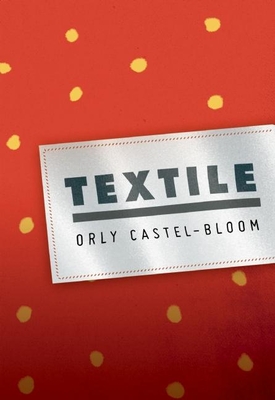The Reuben/Rifkin Jewish Women Writers Series
by Orly Castel-Bloom
A wealthy Israeli family is at a precipice in their lives in this nuanced, contemporary novel. As Amanda Gruber, the matriarch of the family, undergoes an invasive cosmetic procedure, Lirit, her rebellious daughter, takes over operations at the family's pajama factory. Her brother Dael serves in the Israeli Army as a sniper, while Irad, their neglectful father, a genius scientist, travels to the United States to conduct research on flak jackets. Each family member is pulled in conflicting directions, forced to examine their contentious relationships to one another. With surprising humor, Textile details the gradual disintegration of a family strained by distance and the corrosive effects of militarism and consumerism.
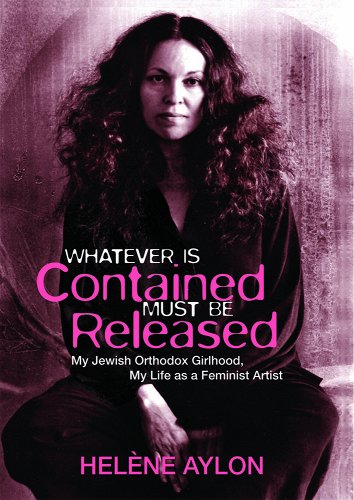
Helène Aylon, z’l, was a good Jewish girl raised in orthodox Brooklyn, married to a rabbi, and a mother of two when her world split apart. A widow at thirty, she broke free of tradition to become an eco-feminist artist whose work deals in transgressive images about war and peace, women's bodies, women and god, and the deeply religious world.
The memoir is a charming dash through the years of a structured Orthodox life and the artistic life that led her to question the misogyny of her beloved religion. It is also a tell-all about the art world, with fascinating details about luminaries such as Ana Mendieta, Ad Reinhardt, Mark Rothko and Betty Parsons.
Examples of Aylon's work include her early doors for the Jewish chapel at JFK airport, her peace pillowcases (including one worn by Grace Paley), and her search for the links between feminism and Judaism.

Short-story writer Faye Moskowitz presents a collection of wise, wisecracking, occasionally heartbreaking stories of a Jewish childhood in Depression-era Michigan. In this collection of 17 untitled selections, Moskowitz shares recollections of memorable moments and personalities from her life, touching upon such personal and universal themes as pain, death, prejudice and faith. Varying in length from two to 25 pages, these reminiscences and reflections exhibit the strength of love among friends and family that remains despite individual and religious differences.
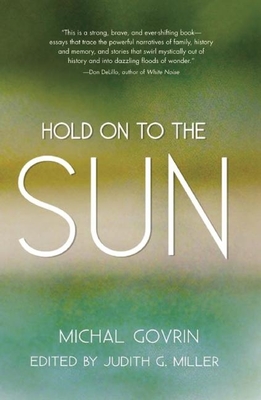
Edited by Judith Miller
In this portrait of the artist as a young woman, Michal Govrin, one of Israel's most important contemporary writers, offers a kaleidoscope of stories and essays. Populated by mysterious and real people, each tale is in some way a search for meaning in a post-Holocaust world. Reminiscent of W.G. Sebald, characters irrationally and humanely find reason for hope in a world that offers little. Essays describe Govrin's visits to Poland as a young adult, where her mother had survived a death camp. Govrin journeys there after she learns that her mother had not been alone. She lost her first husband and 8-year-old son, Govrin's half brother, and kept it a secret from her second family for many years. In a multiplicity of voices, Govrin's haunting stories capture the depths of denial and the exuberance of youth.
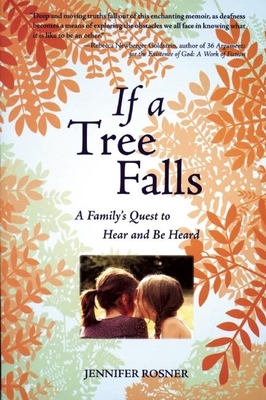 by Jennifer Rosner
by Jennifer Rosner
Jennifer Rosner's revelatory memoir explores family, silence and what it means to be heard. When her daughters are born deaf, Rosner is stunned. Then she discovers a hidden history of deafness in her family, going back generations to the Jewish enclaves of Eastern Europe. Traveling back in time, she imagines her silent relatives, who showed surprising creativity in dealing with a world that preferred to ignore them.
Rosner shares her journey into the modern world of deafness, and the controversial decisions she and her husband have made about hearing aids, cochlear implants and sign language. An imaginative odyssey, punctuated by memories of being unheard, Rosner's story of her daughters' deafness is at heart a story of whether she — a mother with perfect hearing — will hear her children.
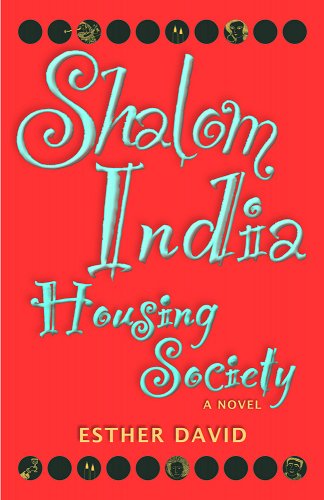 by Esther David
by Esther David
Over two thousand years ago, remnants of one of the lost tribes of Israel appeared on the shores of India. They became known in India as the Bene Israel and nothing has been the same since.
After religious riots break out in modern Ahmedabad, Gujarat, a handful of the tribe's descendants band together to live in a communal housing complex: the Shalom India Housing Society. Surrounded by their Hindu and Muslim neighbors, the residents of these charming apartments find ways to laugh (the laughing club meets every morning on the lawn) and love, whether it is a crush next door or an Internet date with a distant Israeli.
Writing with wit and an artist's eye for detail, Esther David vividly portrays a resilient group who share a fondness for the liquor-loving Prophet Elijah and costume parties. These true-to-life stories depict the joys and conflicts of a people continually choosing between the Indian traditions of their homeland and their Jewish heritage.
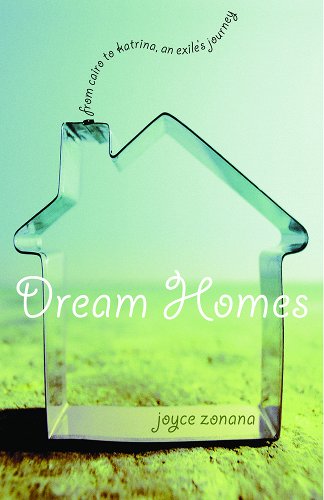 by Joyce Zonana
by Joyce Zonana
An Egyptian-Jewish Under the Tuscan Sun, Dream Homes chronicles Joyce Zonana’s quest to find a sense of home among people, foods and places as far from her native Cairo as Oklahoma and Katrina-stricken New Orleans.
After the Arab-Israeli war of 1948, newlyweds Felix and Nellie Zonana flee Cairo with their infant daughter Joyce, ending up in Brooklyn. Growing up, Joyce swiftly realizes that her Jewish family and their Egyptian culture are neither typically American nor typically American-Jewish; they eat kobeba instead of kugel and speak French instead of Yiddish. Struggling with her feelings of isolation from other Americans and frustrated by never getting full access to Egyptian-Jewish culture, Zonana sets out on a life-long journey to find her place in the world.
She meets her extended family living in Colombia and Brazil and travels to Cairo to get a glimpse of her parents’ past. After she and her mother survive the devastation of Katrina, Zonana comes to see that “home” is not a location, but a spiritual state of mind. Zonana’s heritage and quest are also evoked in numerous photos and family recipes.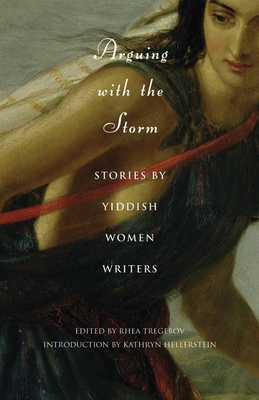 Edited by Rhea Tregebov
Edited by Rhea Tregebov
Foreword by Kathryn Hellerstein
From rural Jewish towns in Eastern Europe to the New World, from abortive revolutions in Tsarist Russia to the Holocaust, nine women writers from the golden age of Yiddish explore multiple lost worlds. The stories range from the wryly humorous – a girl finds a non-Jewish wet nurse for her cousin with dire consequences – to the bittersweet.
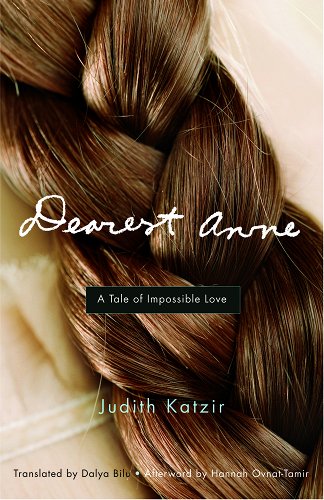 by Judith Katzir
by Judith Katzir
Translated from the Hebrew by Dalya Bilu
Afterword by Hannah Ovnat-Tamir
Best-selling Israeli novelist Judith Katzir recreates a writer’s coming-of-age during the 1970s. When Rivi returns to Israel decades after a turbulent affair with her female literature teacher, she recovers the emotionally charged journals she once addressed to Anne Frank. As Rivi reads them again, readers experience her teenage angst and the jolt of her illicit affair that ended in scandal. Provocative and heartbreaking, the book gracefully echoes Frank’s famous diary and at the same time engages with its tragic heroine, revealing universal truths about the transition from girl to woman.
